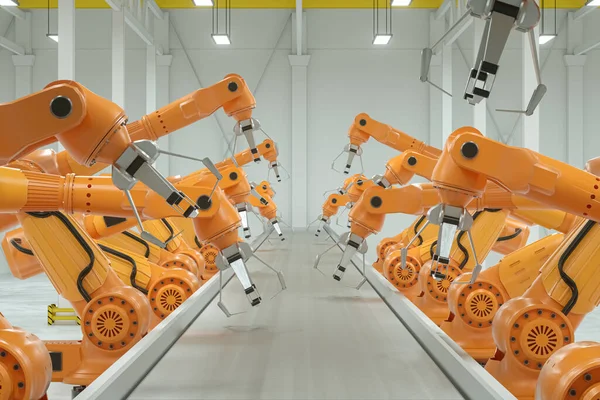The term "technological progress" creates the illusion that the development of technology is steadily improving people's lives.

Progress breeds evolution and revolution. Technological innovations may be revolutionary, but not every revolution is progress: many of the revolutions that have taken place in history have been destructive rather than constructive.
The term "technological progress" creates false, illusory ideas in people. Every technological discovery is also a closure. The discovery of new possibilities closes the possibilities that existed before - de jure and / or de facto.
Illustration from physics. When mixing two gases, there is a theoretical possibility that they will again disperse through the vessels in which they were before mixing. But the likelihood of such a process is extremely small. And in practice this does not happen.
And here is an illustration from the "kingdom of the tenth muse." The technology of sound film has given world cinema tremendous opportunities, but it has also killed the great cinematic pantomime. Charlie Chaplin and Buster Keaton of the era of the Great Silent, being "killed" by the sound recorded on the same film as the images, ceased to be born.
Some technologies produce revolutionary changes. For example, the invention of tillage and the invention of the steam locomotive. In the first case, nomadism, which was based on hunting, was replaced by a settled life, which was required by agriculture. In the second case, the romance of Pushkin's "The Stationmaster" and traveling on horseback a la "Three Musketeers" disappeared along with the railway.
The term technological progress creates the illusion that the development of technology is steadily improving people's lives. Which is absolutely wrong. Technology is changing lives, that's for sure. But not necessarily for the better.
The creation of artillery changed the nature of warfare. The heroes of the Iliad during not only the Second World War, but even during the Seven Years' War would have been impossible. A fool-bullet and a blockhead projectile will mow down both Achilles and Hector with a direct hit. Had Homer lived during World War II, the Iliad and Odyssey would never have been written.
The advent of contraceptives has changed sexual life and created equality for women in the sexual sphere, which has never been possible before, forever destroying the traditional family and its values, on which all social development was based.
The advent of computers, which opened up opportunities for communication that were not possible before, immobilized billions of people. Instead of running around playing football, they play the computer game FIFA by moving two fingers on a computer mouse.
Lovers of the 21st century, even clinging to each other, as in the days of Pushkin and Cleopatra, from now on can write SMS to anyone and anything, anywhere. Romeo now cannot be alone with Juliet, and Onegin cannot be with Tatyana. With cell phones in hand, they are not alone. And this is not only a different literature, but also a change in the life of every person. Definitely not for the better.
Instead of the imposed term technological progress, which is misleading, it would be correct to say technological development. By the way, it can be associated with progress, regression, or both.
Progress is determined by evolutions and revolutions. Revolutions in the life of societies and the individual occur as a result of: the establishment of new orders (laws, decrees); the emergence of revolutionary technologies that radically change lives; spreading new diseases or defeating existing ones; military defeat.
Social life can be represented as a collection of islands. Not land islands in the middle of the water surface, but islands in the space and time of human communication. They, these islands, appear, change and disappear.
New technologies can change life a little (examples are the appearance of a transistor receiver instead of a detector and a typewriter, with the help of which text is generated not by moving a pen on paper, but by striking the keys with fingers). Or they may turn out to be a social tsunami that destroyed the existing way of life and created a new one. Like, for example, agriculture, which replaced nomadism in humanity with a settled life, or the ban on theaters after the victory of Christianity, which changed life in Europe for a whole thousand years. During this millennium, the population was entertained only by jugglers and buffoons. And the resolution of theaters in the Renaissance changed life, not making it identical to the one that was destroyed starting from the 5th century.
The creation of nuclear weapons and intercontinental missiles is certainly a colossal leap in technology. But these technologies can cause an apocalypse not only for all mankind, but also for all living things, the entire biosphere. And also the geosphere. To accomplish this by the hands of people before this stage of "technological progress" was even theoretically impossible. Whether the apocalypse (if it comes) can be called the result of technological progress, which is always beautiful, is a question for philosophers.
The study of mankind's past must become the study of these spatio-temporal islands. Their origin, evolution and disappearance. With the possible appearance of others in their place - or none.
As for the dominance of technology in civilization, it should be understood that not every new technology is progress. Technological innovations and discoveries can be both regression and disaster. Mankind needs reasonable conservatism in relation to innovations.
In the 21st century, humanity has reached a level where many technological innovations are being created that cannot coexist simultaneously. Which ones dominate despite propaganda is determined not only by competition and the free market, but also by the policy of technology giants buying up competing patents and shelving them. Not necessarily everywhere new technologies should be applied in the same way. This applies to cities, countries, and apartments.
The expression “my house is my fortress” should be replaced with “my house is my universe”. At the same time, the universes even in neighboring rooms can be different. If until the 20th century, during plague epidemics, people could only fill their leisure time with conversations, reading and playing chess/cards, then the now closed house is connected with the whole world - moreover, in many ways at the discretion of the owners.
Globalism, like technological development, should cease to be a sacred cow, but be combined with localism - globalism, that is, harmony at all levels.
But the main thing and the main thing that should be changed is the perception of technological development as progress, and only progress. The established meaning of the term "technological progress" is provocative, incorrect and socially dangerous. Technological evolution should be treated with inquisitiveness and favor, but at the same time with thoughtfulness and caution.
NY.
 Geopolitical concepts*
Geopolitical concepts*